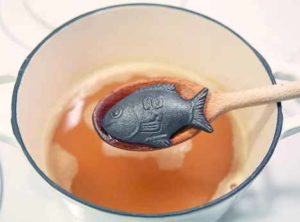It’s become our nightly routine: we sit and stare at our adorable little son over the empty dinner table, our own food long finished, and the dishes already rinsed, and plead with him, threaten him, bribe him with sweets. If he will just finish his dinner. It seems like a constant worry. Is he getting enough calories? Enough protein? Eating enough veggies? Does he need more Omegas?
The struggle is real. And while we all know that nutrient deficiencies are bad for your body, most of us don’t realize it can mean big problems for your oral health, too.
Kids Need Good Food for Healthy Teeth
While children’s teeth are still developing, they are subject to all kinds of disorders and malformations. Most of us are aware that certain antibiotics should not be given to kids because it will create permanent discoloration on their adult teeth. However, malnutrition and nutrient deficiencies can also harm developing teeth.
Protein and calorie malnutrition can be highly destructive. Malnutrition can cause delayed tooth eruption, salivary gland disorders, and reduced tooth size, as well as problems with the mineral structure of the enamel. While this might seem rare in most areas of the US, it affects more children than you might realize. Parents who are raising their kids vegetarian or vegan need to exercise extreme caution and be sure to carefully balance their child’s protein intake. Consulting with a pediatric dietitian is vital for parents of meat-free kids.
Vitamins A, C, and D are also essential for healthy tooth formation, and calcium doubly so. Deficiencies in these vitamins can lead to poor wound healing, red and bleeding gums, and malformed teeth. Children with insufficient vitamin intake can be at extra risk for cavities due to weak enamel. They may also lack adequate bone structure to support the teeth, leading to periodontal disease in adulthood.
Adults Need Their Veggies, Too!
Most chronic oral lesions like angular cheilitis and burning mouth syndrome are linked to vitamin deficiencies. The B vitamins are among the most important for soft tissue health. B12 deficiency can lead to halitosis, bone loss, painful oral ulcers, and periodontal disease. Fortunately, it is readily available in eggs, cheese, milk, fish, and shellfish. However, vegans need to be especially mindful to get enough B12. Nutritional yeast is the easiest way to get a great B12 boost. Fortified nut and oak milks, cereals, and breads also provide great vegan sources.
Iron is the most common vitamin deficiency in the world. Insufficient iron can lead to red, burning tissue in the mouth and salivary gland dysfunction. It is also linked to dysphagia. Elderly patients are commonly lacking sufficient iron intake. However, supplements are not always the best way to get enough iron as they have other side effects. Cooking in cast iron actually puts usable iron into your food, and there are even little iron knickknacks (see picture) you can put in your food while it’s cooking to leach iron into your food.
In the US, calcium is the most common nutrient deficiency. Lack of calcium makes teeth more susceptible to decay, and leads to problems with swallowing as well as weak bone structure supporting the teeth. Remember that calcium interacts with other vitamins. Vitamin D helps the body utilize calcium. Here in the Sunshine State, we are lucky to have a great source of vitamin D always available! A little daily sun here in Florida is enough for most healthy adults. Vitamin C, on the other hand, can decrease calcium uptake and in turn calcium can interfere with iron and zinc uptake. Therefore, supplements should be taken cautiously and with the advice of a physician or dietitian.
Eat Variety, Don’t Panic
Patients on especially restrictive diets should to pay extra attention. It has become pretty easy to build a healthy and balanced diet as a vegetarian or vegan. Patients doing keto or paleo diets do need to make sure their micro-nutrients aren’t lacking, though.
Most people in the US have adequate access to good nutrition. We are very fortunate to have a wide variety of produce and fortified foods available at most supermarkets. For the most part, as long as you get some variety in your diet, you’ll be fine. Just don’t go crazy with your supplements. A simple multivitamin, maybe an extra Omega here and there should do it. Protip: if your kid won’t eat their vegetables or pulses (chickpeas, legumes, etc.), smoothies are where it’s at. If it comes out bright green, tell them it’s a Hulk smoothie. That usually works.
In general, variety and balance are the keys to a great diet to keep you smiling, Orlando!



